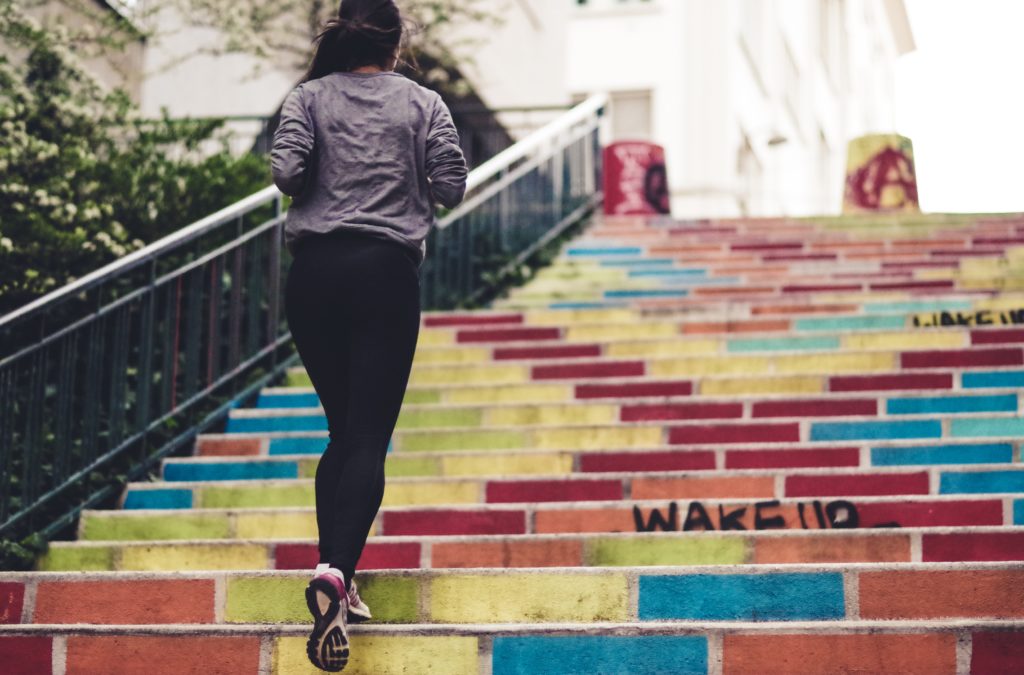7 Habits That Can Lead to Joint Pain
Joint pain is a daily part of life for tens of millions of Americans, and the list of potential medical reasons is long, from the most common diagnosis — arthritis — to other, sometimes more serious diseases.
In addition to pain and stiffness, angry joints can lead to decreased mobility and range of motion, difficulty performing even the easiest of tasks, and could require treatment including joint replacement.
But if you’ve ruled out arthritis, injury, and other medical-related causes, you may want to take a look at your lifestyle. Is your pain stemming from a bad habit (or two)? Here are 7 things in everyday life that can lead to joint pain.

Weight Issues
Did you know that each pound of body weight puts four to six pounds of pressure on each knee joint? According to the American Academy of Orthopedic Surgeons, people considered to be obese are 20 times more likely to need a knee replacement that those who are not overweight. Carrying extra weight can also impact your shoulders, spine, hands, hips, feet and ankles.
Bad Shoes
Those new stilettos might look fantastic, but beyond that, they’re likely to do your body more harm than good. Bad shoes can cause improper alignment, which in turn causes knee and ankle pain. And we’re not just talking high heels — flip-flops can cause issues, too (sorry, Floridians). Be especially picky about your shoes for exercise and athletics, and be sure you’re properly supported for your sport of choice.
Repetitive Motion
Sports like running, tennis or basketball that require repetitive motion, hard starts, stops and changes in direction can put unnecessary stress on your larger joints. And likewise, fine-motor activities such as typing, knitting or assembly-line work can lead to not only arthritis but also carpal tunnel syndrome and other repetitive stress injuries. In fact, it’s one of the top causes of injuries in both sports and the workplace.
Heavy Lifting
You’ve likely heard the phrase “Lift with your legs, not your back.” It’s good advice for a number of reasons, including avoiding potential joint pain that can come from tearing or irritating the tendons and ligaments that surround them. Lifting heavy objects, whether at the gym or just around your house, also puts extra stress on your joints. If you can’t split or lighten the load, be sure to keep it close to your center of gravity and use your larger leg muscles to pick it up.
Not Stretching
A good warm-up and stretch before you exercise can help decrease your risk of injury. But stretching to maintain healthy joints is about more than just working out. Maintaining flexibility and range of motion, especially in the joints that bother you most, can help you avoid injuries that can come with even common household activities. Even better? Daily stretching can ease the pain of arthritis by keeping the joints lubricated and moving.
Lack of Sleep
If you’ve ever been in enough pain to be uncomfortable, you know how difficult it can lead to lack of sleep. But you may not know that it also works the other way–a lack of sleep can exacerbate joint pain, especially in patients with osteoarthritis or rheumatoid arthritis. Studies have found that disrupted sleep leads to higher numbers of inflammatory molecules that make their way to the joints. The good news is, it’s also believed that treating insomnia can help,
Stress
Stress can affect everything from sleep to hormones, but it can also manifest itself as joint pain in a number of ways. Physically, it can be via hunched up, tense shoulders or a closed-off posture. (If you’ve ever taken a moment to consciously relax, you may have noticed just how tensely you were holding your body.) Mentally, stress triggers the body’s “fight or flight” reaction, which sends nutrients like calcium and magnesium to your essential organs — and away from your bones. Over time, it can lead to osteoporosis, muscle weakness and increased risk of injury.
How Alexander Orthopaedic Associates Can Help You
If you have one or more joints that are causing you pain, our experts can help. We specialize in state-of-the-art orthopedic care that helps you get back to pain-free. Make an appointment today.
